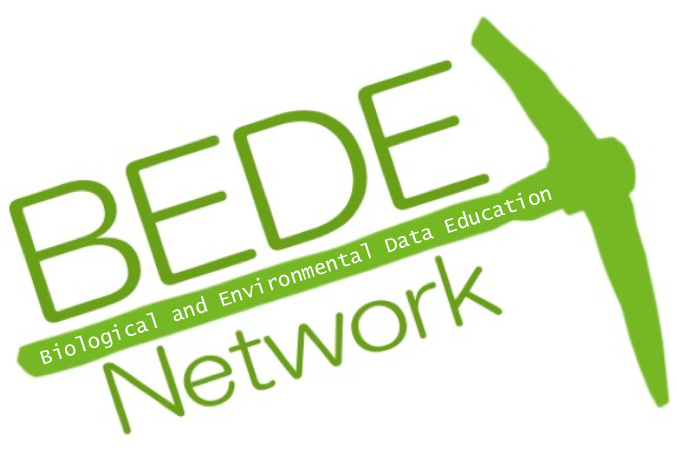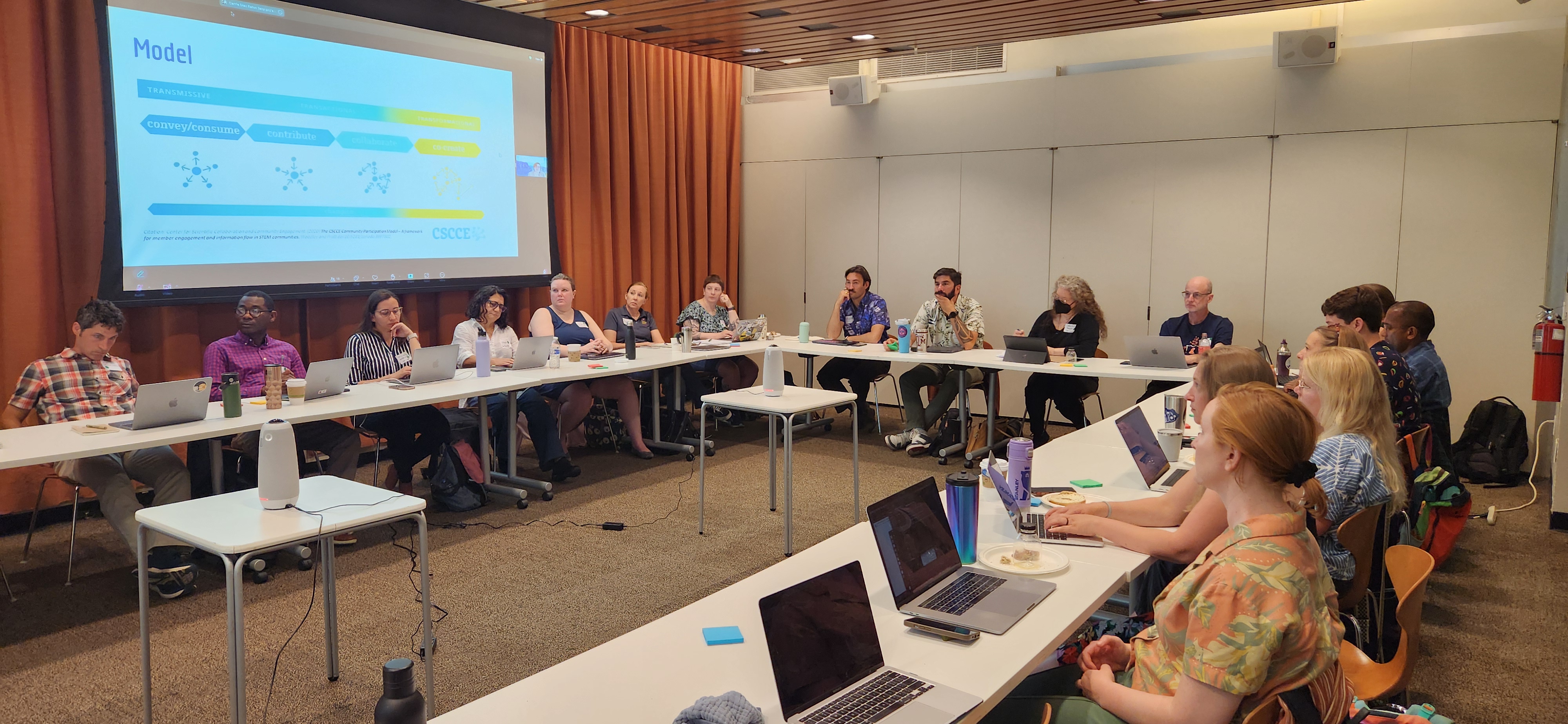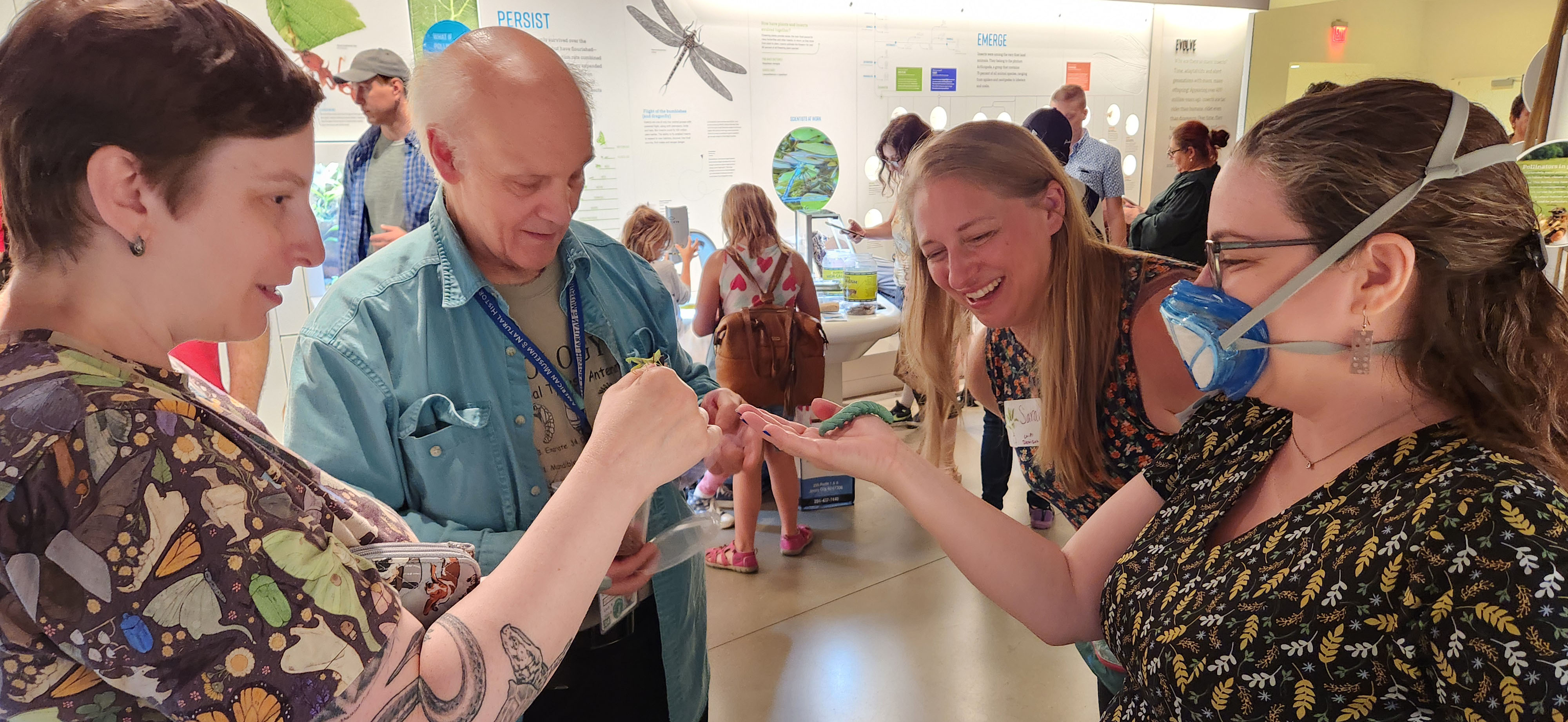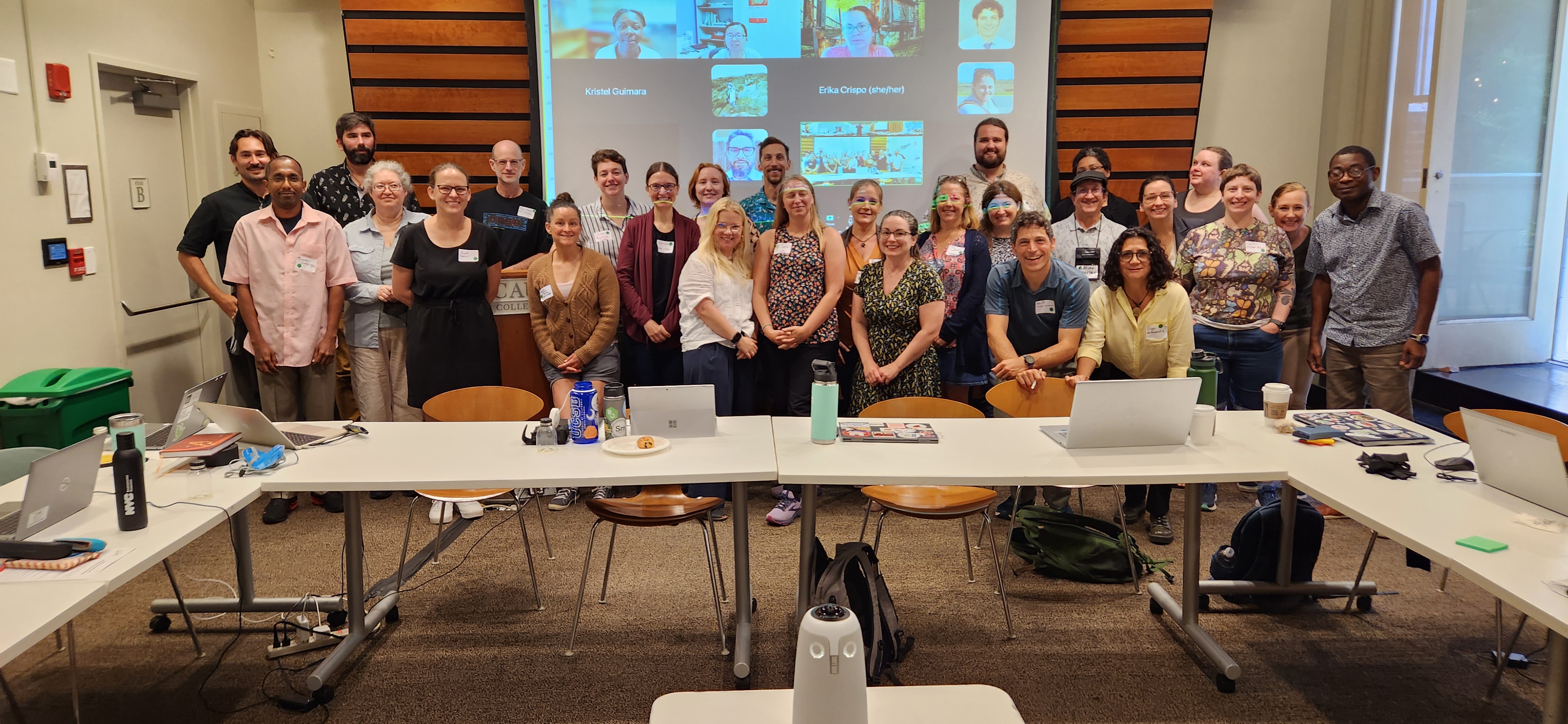
Community Spotlight: Biological and Environmental Data Education
This month, we shine a light on a group of educators and education specialists who aim to enhance data science pedagogy in undergraduate biology and environmental science curricula. Biological and Environmental Data Education, or more commonly known by their acronym BEDE (pronounced “bead”), is a network of educators who support and empower each other to teach data science skills to their students.
In this spotlight, we sat down with Erika Crispo, Professor and Associate Chair in the Department of Biology at Pace University, and Sarah Supp, Associate Professor of Data Analytics at Denison University to dig in a little deeper about the BEDE project and their goals.

Tell us a little bit about BEDE. Who are the members? How did it get started?
SARAH: BEDE first began as a shared idea, a recognition that data and code literacy were increasingly important, and being talked about by undergraduate instructors, but that change was challenging and slow to happen. The first conversation took place at a hotel table during the International Biogeographical Society 2017 meeting with a handful of instructors.
The main focus of these early conversations was recognizing that the instructors were a critical bottleneck to creating change in the curriculum. Faculty need support to learn and update their skills, to adapt those skills to the classroom, to learn new teaching modalities, and to engage in conversations with their departments or administrators to gain support for how such changes affect teaching needs and review/promotion processes. We kept the conversation going and had a great first meeting in 2019 that brought together about 15 people, and really set the stage for a full grant and for the main projects that have driven BEDE Network up to this point.
ERIKA: In 2020, we received a 5-year National Science Foundation Research Coordination Networks in Undergraduate Biology Education grant to fund our activities, primarily for participant travel to our annual meetings. We have had three successful annual meetings thus far and have at least two more planned, for the summers of 2025 and 2026, respectively. Members of our network are from various career stages, and represent a range of institution types, from high schools to 2- and 4-year colleges and community colleges, and from undergraduate-focused and PhD-granting universities. Everyone is welcome in the BEDE Network!
Describe what BEDE is working towards in STEM education?
ERIKA: We are working towards the inclusion of more data-focused pedagogy in biology and environmental science curricula. Achieving this goal meets two needs; 1) it provides students with career-building skills (for example, students who have taken my courses came back to visit years later and told me they were offered their current positions because of the experience with what they learned in my class) and 2) students learn content material better through active learning than through rote memorization and didactic “textbook” learning. Through the process of analyzing data from experiments, students come upon answers themselves rather than being told what they are supposed to be seeing or hearing.

SARAH: The changes Erika mentions have clear benefits for students, but the focus on instructor capacity and support are also helping develop a community of folks who can make larger changes together, rather than isolated faculty changing just one class. The QUBES Platform, Slack and the BEDE Network annual meetings have built and continue building a community of biology instructors who can connect based on shared experience, resources and knowledge. The projects BEDE Network is supporting have the ability to reach a much larger audience, that we hope transforms the conversations that entire departments, divisions and administrative units have regarding data science in undergraduate Biology classrooms. For example, the BEDE Network Data Science Skills Curriculum Map can be used by a single instructor to guide developing a single course, but is designed to be used across an entire curriculum.
What keeps you motivated and gives you hope?
ERIKA: Educators and students are increasingly understanding the importance of data science in our world. New technologies are allowing for faster and newer ways of analyzing data. It is a very exciting time to be a scientist.
SARAH: Undergraduate Biology instructors are already so motivated to learn updated data science skills and to find ways to integrate them into coursework at all levels of higher education. It is so rewarding to tap into that energy by providing a space for people to connect with each other and to work together on projects that will make it easier for everyone to actually start making changes in their class or in their departments.
Are there teaching resources you’d like to point our community to?
ERIKA: We hold BEDE Network Office Hours on the third Wednesday of each month from 2-3 pm EST during Fall 2024 semester. For this upcoming semester, we agreed upon discussing one SLO (Student Learning Outcome) from our Curriculum Map at each one of our office hours. The SLOs are Analysis, Coding, Ethics, Management, Modeling, Reproducibility, Visualization (see https://qubeshub.org/publications/4859/1). We would love to have volunteers discuss how they teach and assess these SLOs in their courses. Please reach out to us! Email bedenetwork@gmail.com.
SARAH: The Faculty Mentoring Network (FMN), training workshops and our monthly office hours create a space for folks to level-up their skills within the context of how they would teach those methods to undergraduates in their classes.
How can our community connect with you or get involved with your projects?
ERIKA: Please join our QUBES Platform group and our Slack channel. You can find our QUBES Platform group here - click on “JOIN GROUP” at the upper right corner. For an invitation to join our Slack channel, email bedenetwork@gmail.com. The BEDE Network hosts several active subcommittees with goals of publishing resources for educators. After joining our QUBES Platform group, check out what our subcommittees are doing and email us to join one or more of them here.
